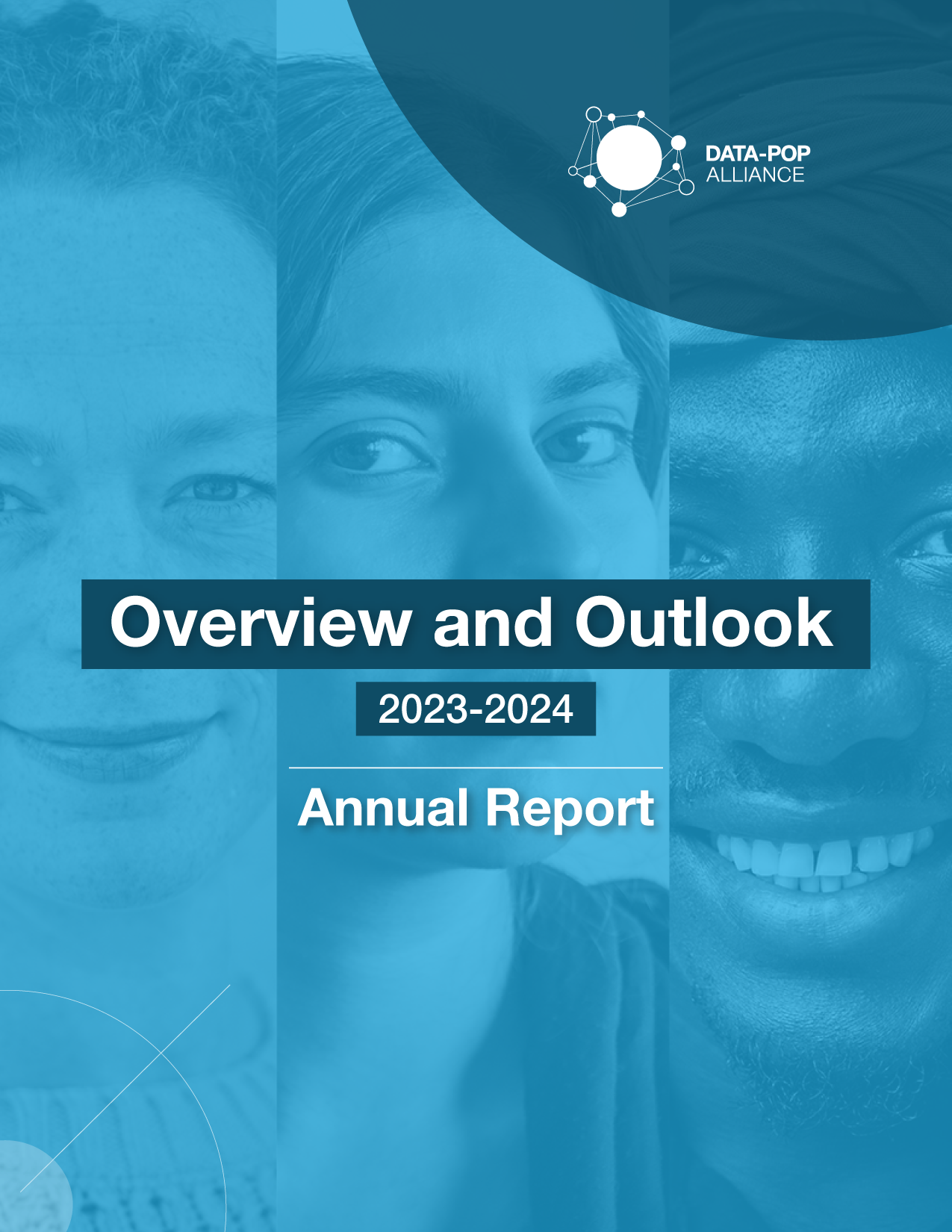
Data-Pop Alliance is looking for a Qualitative Research and Facilitation Expert Consultant. We are an international non-profit “think-and-do-tank” created in 2013 by the Harvard Humanitarian Initiative (HHI), the MIT Media Lab and ODI. We bring together researchers, experts, practitioners, and activists to “Change the world with data” through three pillars of work: diagnosing local realities and human problems with data and AI; mobilizing capacities, communities, and ideas towards more data literate societies, and transforming the systems and processes that underpin our societies and countries. To learn more about DPA, please visit our website or read our “Overview and Outlook 2021-2023” report here.
The Qualitative Research and Facilitation Expert Consultant (referred to as Consultant from hereon) should be based in Tunis, Tunisia to support the study commissioned by the UN system in Tunisia and in partnership with the National Statistics Council (Conseil national de la statistique, CNS) of Tunisia. The objective of the study is to conduct a comprehensive diagnostic of the Tunisian National Statistics System (NSS) and support the development of the National Strategy for Development of Statistics (NSDS).
Project Dates: Immediate – November 30, 2022, overall consultancy of 15 days spread out over 8 months
Location: Tunis, Tunisia with potential field missions in the various regions
Scope of Work
Reporting to the DPA Project Manager and working closely with the project team, the Consultant will support qualitative research data collection activities (key informant interviews [KIIs] and focus group discussions [FGDs]) in Tunisia. Below is the summary of the key responsibilities:
- Support the literature review process by reviewing and summarizing key information from project documentation, including potential translation / interpretation from Arabic to French.
- Review the drafts of the qualitative data collection instruments (KII and FGD guides, self-administered surveys, etc) for coherence.
- Conduct in-person KIIs with selected stakeholders to collect the necessary data and information for the diagnosis of the NSS.
- Lead and facilitate in-person FGDs with the Tunisian statistical system staff.
- Support triangulation and analysis of the qualitative data collected by drafting summary analyses of the conducted interviews and FGDs.
- Support the drafting of the presentations and research policy briefs aimed at communicating the findings and evidence-based policy recommendations.
- Support translation of documents between Tunisian Arabic and French, and vice versa as needed.
- Support the organization and delivery of training workshops (max. 2) on the NSDS development for the staff of the NSS.
- Support the organization and moderation of the national workshops (max. 3) for the presentation of the results of the diagnostics, development of the NSDS and development of the strategy implementation action plans.
Profile/Qualifications (Required)
The ideal candidate is a qualitative research professional with expertise in statistical systems and public administration processes based in Tunis, Tunisia and fluent in French and Tunisian Arabic, with working proficiency in English. The candidate is an expert problem solver who is flexible and adaptable to changing realities of the project. The candidate should be an analytical thinker with solid communication skills that will enable her/him to interact effectively with diverse stakeholders, including government officials.
- Bachelor’s degree in international development studies, sociology, statistics, or other related disciplines and 8+ years relevant professional experience may be accepted in lieu of a higher university degree.
- Demonstrated professional experience overseeing and conducting primary social science research and data collection activities, including surveys, key informant interviews (KIIs), focus groups (FGDs), and moderating meetings with high level officials in the government, private sector and or civil society sectors.
- Proficiency using Microsoft packages, Google Suite applications, NVivo or similar software is highly desirable.
- Fluent writing and communication in French and Tunisian Arabic, with working proficiency in English.
- Experience working with the Tunisian government entities and UN system in Tunisia.
- Understanding of the cultural context and excellent communications skills that are appropriate and respectful to policymakers and the public in general.
- Demonstrated experience presenting work to both technical and non-technical audiences.
- Proven ability to work in highly paced diverse work environments.
- Ability to work with people from different cultural backgrounds.
- High interpersonal, communication, solving-problem and adaptability skills.
Profile/Qualifications (Desired)
- Master’s degree in international development, social studies, statistics, public policy or public administration, or other related disciplines.
- Knowledge and experience working within the National statistical systems is highly desirable.
Remuneration
Competitive, based on experience.
Recruitment Process
Qualified candidates are requested to submit a CV and a Cover Letter (detailing your qualitative research and facilitation experience) into jobs@datapopalliance.org with the subject line “Qualitative Researcher and Facilitator for Tunisia” by July 15, 2022, 6:00pm GMT. Please include in the body of the email:
-
- 2 references
- Daily rate
Please note that only complete applications submitted in French will be considered. Due to the large volume of applications, only short-listed candidates will be contacted.
Equal opportunity
Data-Pop Alliance employs personnel without regard to race, ancestry, place of origin, color, ethnic origin, language, citizenship, creed, religion, gender, sexual orientation, gender identity, age, marital status, physical and/or mental handicap or financial ability. While remaining alert and sensitive to the issue of fair and equitable treatment for all, Data-Pop Alliance has a special concern with the participation and advancement of members of four designated groups that have traditionally been disadvantaged in employment: women, visible minorities, aboriginal peoples and persons with disabilities.


